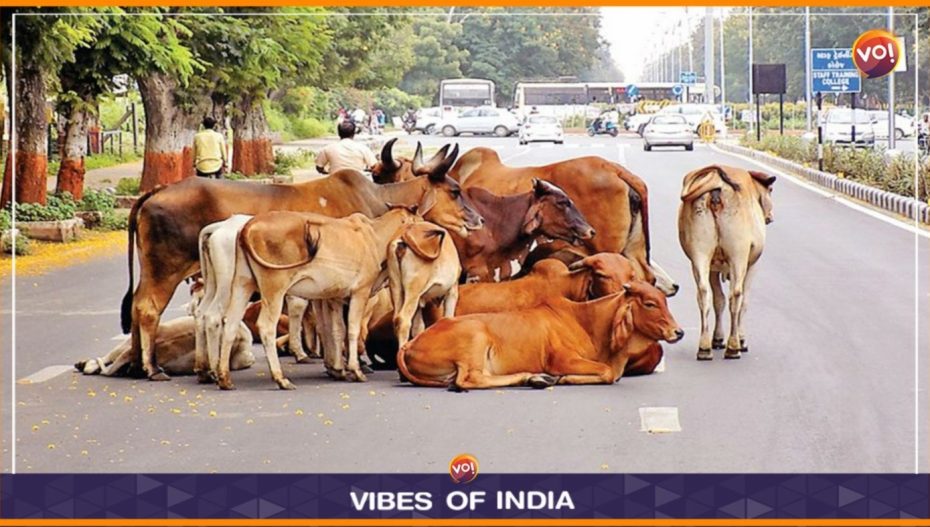Following the recent ruling by the Gujarat High Court on the matter of stray cattle in Ahmedabad city, the Standing Committee convened today and gave its approval to a policy aimed at preventing and controlling cruelty towards cattle in the city.
As per the newly approved policy, it is now mandatory for individuals to possess land for keeping animals within the city limits. Animals cannot be kept if there is no designated land available. Additionally, every animal owner is required to obtain a licence and permit for animal-keeping. The Standing Committee has granted approval to the draft Policy 2023 on Prevention and Control of Cattle Cruelty, with some amendments.
The background to this development traces back to the period preceding the 2022 Gujarat assembly elections, during which the state government introduced a bill to enforce regulations for cattle control. However, the bill was later withdrawn due to protests from the cattle farming community. In April 2023, the draft policy for the prevention and control of cattle cruelty in Ahmedabad city was presented for approval during a meeting held by the Ahmedabad Municipal Corporation. However, it did not receive approval at that time.
The Corporation prepared a draft Policy 2023 on Prevention and Control of Cattle Cruelty in Ahmedabad City under various laws, including the GPMC Act.
The provisions outlined in this draft policy are as follows:
A. Cattle owners must obtain permits and licences. A licence fee of Rs. 500 per animal, along with a permit fee of Rs. 250 per animal per year, will be applicable for a period of three years.
B. The use of RFID tags has been made compulsory for all animals within the city. Prior approval from the Commissioner is necessary to bring any animal into the city. Failure to apply the RFID tag within two months will result in a fine of Rs. 1,000. If the tag is not applied within four months, the animal will be confiscated and cannot be released. It is essential to have adequate space for keeping animals. If there is insufficient space, all animals must be relocated from the city within two months.
C. New cattle depots will be established in different zones within the city.
D. The animal capture team will now include local police personnel.
E. Legal action will be taken against anyone who obstructs the cattle capture operation. Motorcyclists who disrupt the process will face a police case. Cameras will be installed on animal capture vehicles to provide evidence.
F. A licence is mandatory for selling grass, and it is prohibited to place or sell grass on roads or footpaths.
G. Stray animals will be captured.
H. The liability of animal owners has been determined. In the event of an accident or death caused by an animal, the owner is required to provide compensation. Civil and criminal actions will be taken against non-compliant owners.
I. The fine for releasing captured animals has been established. For example, if a cow or buffalo is caught and released for the first time, a penalty of Rs. 3,000, along with an administrative charge of Rs. 500, will be imposed. The fine will increase by one and a half times for a second offence, and will double for a third offence. If an owner is caught more than three times, their cattle will be confiscated.
J. Measures will be taken to address encroachments caused by animals.
K. Penalties will be imposed for pollution caused by animals.
L. The enforcement of designated Cattle Zones is specified.
M. Procedures for the release of impounded animals have been established.
N. An Animal Helpline will be established.
Livestock owners have a 90-day period to obtain the necessary licences following the publication of this policy by the Corporation. Once approved by the Standing Committee, the policy will be sent to the State Government, and upon notification, it will come into effect. Furthermore, the policy states that if an animal remains unclaimed after confiscation, it will be auctioned and the proceeds will be given to farmers. Trusts and gaushalas (cow shelters) are also required to obtain licences for keeping animals, but they are exempt from fees.













